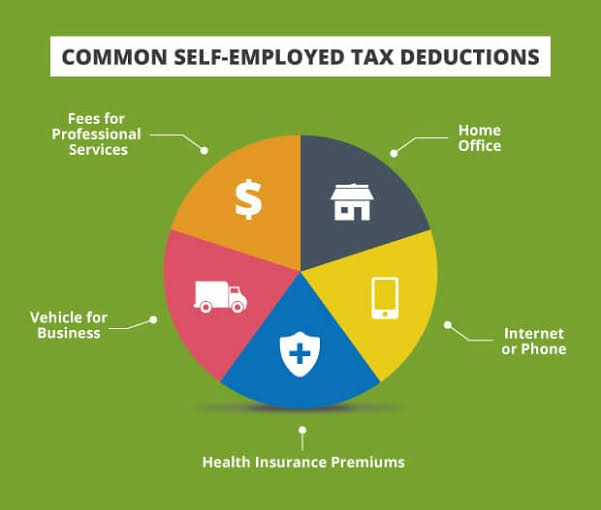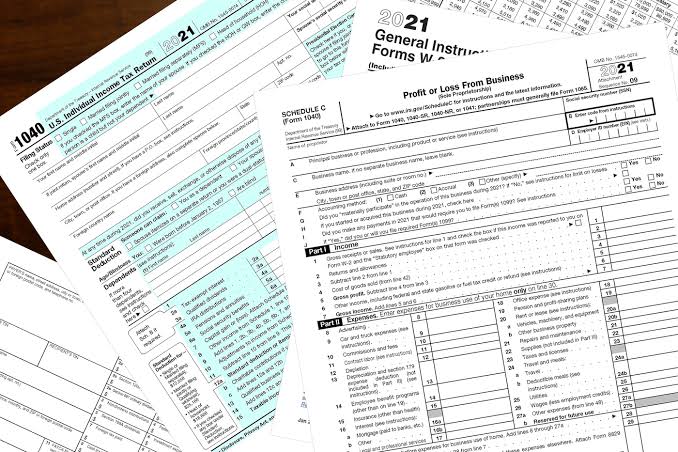Tax season can be a stressful time of year for many Americans, but if you’re a single member LLC owner, self-employed, or a 1099 contractor, you have a unique advantage when it comes to tax deductions. Understanding the tax deductions available to you can help reduce your tax liability and keep more money in your pocket. In this blog, we’ll explore the possible tax deductions you can claim and the benefits and disadvantages of being in one of these categories.

Benefits of Being a Single Member LLC, Self-Employed, or a 1099 Contractor
Before diving into the deductions, let’s briefly explore why being a single member LLC owner, self-employed, or a 1099 contractor can be advantageous:
Flexibility: You have control over your business decisions, from setting your own hours to choosing your clients and projects.
Tax Deductions: These categories offer a wide range of tax deductions not available to traditional employees, reducing your taxable income.
Potential for Tax Efficiency: You can structure your business to minimize self-employment taxes.
Tax Deductions for Single Member LLC, Self-Employed, and 1099 Contractors
Home Office Deduction: If you use a portion of your home exclusively for business, you can deduct expenses like rent, utilities, and maintenance. Be sure to meet the IRS criteria for a home office deduction.
Vehicle Expenses: If you use your vehicle for business purposes, you can claim a deduction based on actual expenses or use the standard mileage rate set by the IRS.
Business Supplies and Equipment: Expenses for office supplies, computers, and other equipment necessary for your work can be deducted.
Health Insurance Premiums: Self-employed individuals can deduct health insurance premiums for themselves, their spouse, and dependents.
Business Meals and Entertainment: You can deduct a portion of meals and entertainment expenses related to your business, as long as they are directly related to your work.
Travel Expenses: Deductible expenses for business-related travel include airfare, hotels, meals, and other necessary costs.
Professional Services: Legal, accounting, and other professional fees related to your business can be deducted.
Advertising and Marketing: Expenses related to promoting your business, such as website development and advertising costs, are deductible.
Utilities and Internet: If you use these services for your business, you can deduct a portion of the expenses.
Retirement Contributions: Self-employed individuals can contribute to tax-advantaged retirement accounts, such as a Simplified Employee Pension (SEP) IRA, and deduct the contributions.
Self-Employment Tax Deduction: You can deduct the employer portion of your self-employment tax when calculating your adjusted gross income.
Depreciation: If you purchase assets like computers or vehicles for your business, you can depreciate their value over time, allowing for ongoing deductions.
Startup Costs: You can deduct certain startup expenses, including legal fees, market research, and advertising costs.
Disadvantages of Being a Single Member LLC, Self-Employed, or 1099 Contractor
While there are many advantages to these business structures, there are also some disadvantages to consider:
Self-Employment Tax: You’re responsible for paying both the employer and employee portions of Social Security and Medicare taxes, which can be a significant cost.
Uncertain Income: Your income may be irregular and less predictable than a traditional salary.
Lack of Benefits: You may not have access to employee benefits like health insurance, retirement plans, or paid time off.
Sole Responsibility: You’re solely responsible for the success and management of your business, which can be stressful.
Complex Tax Reporting: Managing business finances and tax reporting can be more complex than filing as a W-2 employee.
In conclusion, being a single member LLC owner, self-employed, or a 1099 contractor offers significant tax benefits through various deductions that can reduce your overall tax liability. However, it also comes with additional responsibilities and financial challenges. It’s essential to keep detailed records, stay informed about tax laws, and possibly consult a tax professional to make the most of your tax deductions and ensure your business thrives.


